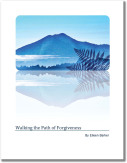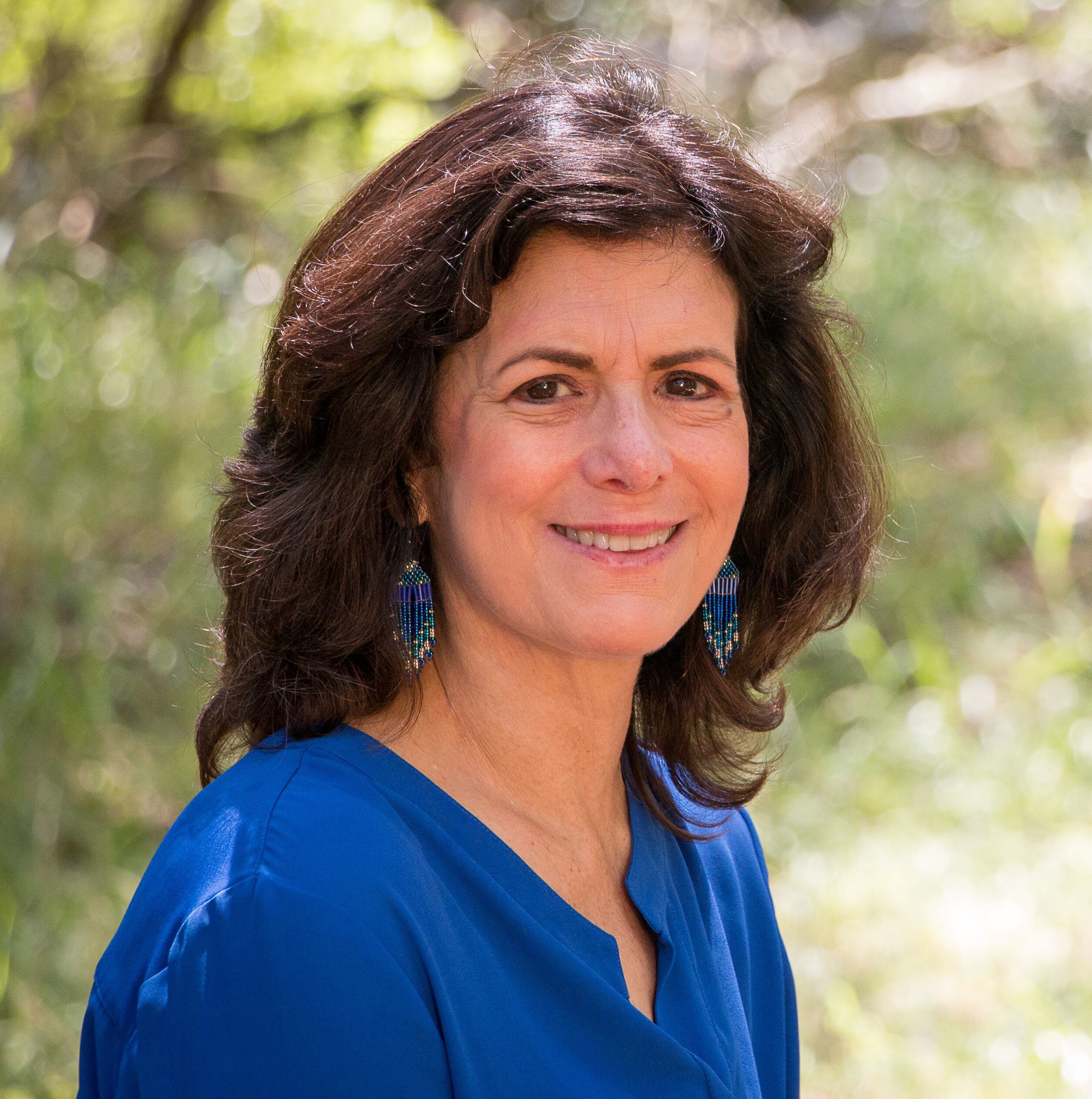What the Bleep does Spirituality Have to do With Conflict Resolution?
by Eileen Barker
For those of us who practice in the hard-nosed world of lawyers, court systems, corporations, government entities, and the like, spirituality might seem like an odd topic. What does spirituality have to do with mediation or conflict resolution? What’s more, spirituality can be a difficult topic to discuss. For starters, some of us are not even comfortable with the word “spirituality.” What exactly does it mean, anyway? It’s difficult to define. It’s intangible. It’s personal. It means different things to different people. For some, it has religious connotations, for others, “new age” associations. A google search for definitions of ‘spirituality’ yields a wide-range of perspectives, including these:
– A sense of meaning and purpose
– A sense of ‘that which is greater than self’
– May include religion but the emphasis is on experience.
– Carries connotations of the believer’s faith being more personal, less dogmatic, and more open to new ideas and influences than the faiths of established religions.
Regardless of the definition, “spirituality” can be controversial, especially in a professional setting. It is a topic that creates openings for some people, closes doors for others. Why then do we have a spirituality section, and why are we devoting an issue of ACResolution to this topic?
Historically, spirituality has not been viewed as a relevant topic for professional dialog or learning. Certainly, the traditional cultures of business and law have placed far greater value on thinking rather than feeling, on the head over the heart, and on all things that can be scientifically measured. Yet, as most practitioners understand well, in the land of conflict resolution, logic, reason and intellectual analysis will take you only so far. Underneath the veneer of what may formally be presented as sophisticated business or legal claims, we are inevitably dealing with human conflict, pure and simple, and all that that entails.
Inmediations, for example, parties frequently achieve settlement of the lawsuit, but leave the mediation with lasting enmity toward the opposing party and often, considerable hostility toward the legal system as well. Is this the best we can do? Sometimes it is. However, we owe it to our profession, our clients and ourselves, to be willing at least to grapple with the harder issues and, when possible, provide options for better outcomes.
As conflict resolution professionals, we are uniquely required to engage with parties and attorneys on multiple levels, including the intellectual, psychological, and emotional. We often encounter intense states of defensiveness, posturing, denial, confusion, anger, fear, frustration, disappointment and on and on. Our effectiveness depends, in large measure, on our ability to understand and navigate the human psyche, in all of its realms. Along the way, we learn to bring our hearts into our work, not just our heads.
Beyond this, lies the next frontier, the spiritual aspect of conflict and conflict resolution. When we speak of the potential for true resolution of conflict and making peace, we are called upon to move to a level of awareness that transcends the intellect, the psyche, and even the emotions. It is the awareness of the witness or observer, the one who sees the drama of live unfolding, but views it from a quiet, detached place. It is the place of compassion. It is the place of being fully present, with no agenda and no judgments.
From the perspective of a detached observer every conflict challenges us to look at our most basic values and assumptions. A mediator or other professional might reflect on: What is the meaning and purpose of this conflict? What is going on beneath the thoughts and the feelings? What is the larger opportunity for these parties? A disputant might ask: What is really true here? What is important? What’s worth fighting over? What is worth expending my time and energy on? How have I contributed to the problem? What is this conflict costing me in the bigger picture of life? What is the opportunity that this conflict offers me? What am I learning?
These sorts of questions, which have everything to do with the spiritual dimension of life, go to very the heart of our work in the field of conflict resolution. From this place, we have the potential to access wisdom. From this place, we have a greater ability to help the parties engaged in conflict not just settle the lawsuit, but address the underlying issues. We have a chance to help them achieve a level of reconciliation which permits them to be at peace with each other, at peace with the situation, and ready to move forward.
The ACR Spirituality Section
Spirituality uniquely cuts across and has relevance to all areas of conflict resolution practice: commercial, workplace, international, organizational, community, education, healthcare, family, etc. Therefore, it is perhaps not surprising that the membership of the Spirituality Section draws from all of these areas and is quite diverse. Each member brings his or her individual experience of spirituality and sense of how spirituality relates to conflict resolution. Yet, there is also a powerful shared vision among section members. It includes a dream of peace, an intention to make a difference in the world, and a desire to help others. Our purpose as a section is to provide a professional community which affirms this vision and supports each member in exploring this terrain in his or her own unique way.
The Spirituality Section was officially founded in 2000, thanks largely to the efforts of Barbara Ashley Phillips. Barbara reports that the first seeds for such a section were planted within SPIDR, one of ACR’s predecessor organizations, by Zena Zumeta and Jeff Abrams. From its inception, the Spirituality Section had a dual mission: First, to focus on the qualities a third party can bring from within in order to enrich the conflict resolution process and experience. Second, to explore questions, stories and other approaches that might allow participants in conflict to access a wiser, deeper part of themselves rather than be limited to the “right/wrong” model of thinking and acting that fail to do justice to the greater possibilities.
The great religious and spiritual traditions teach that all of life is interconnected, that there is an essential oneness shared by all beings. We are taught the importance of love and forgiveness. That we are prone to lose sight of these principles is perhaps most evident in conflict situations. Conflict often triggers deep inner fears which in turn set off an array of familiar defense mechanisms: the desire to blame, the need to be right, the desire to take revenge, and the need to prevail, to name a few. What is generally lacking is awareness of the core fear, an ability to explore non-defensive options, recognition of interconnectedness, and willingness to forgive. Within the Spirituality Section, we explore these questions and more: How can we help disputing parties bring greater self-awareness to the conflict situation? How can we help them access their own spiritual values and beliefs? How can we open a door for true reconciliation. As conflict resolution professionals, how can we “be the peace” we wish to create for others.
As conflict resolution professionals, it is vitally important that we talk about these questions, even though it is difficult to do so. Indeed, it is precisely because spirituality is a difficult topic, and because it is so important to our effectiveness, that it is essential that we have a professional forum to discuss and explore this subject. By establishing a Spirituality Section, and devoting this issue of ACResolution to the topic of spirituality, ACR places itself on the cutting edge of an important exploration in our field which will ultimately support our ability to serve as more effective mediators, as healers of conflict and as peacemakers.
Eileen Barker is a Mediator and Chair of the ACR Spirituality Section.
 Sign up for our newsletter and get a complimentary copy of Eileen's book "Walking the Path of Forgiveness"
Sign up for our newsletter and get a complimentary copy of Eileen's book "Walking the Path of Forgiveness" EILEEN BARKER is an internationally recognized mediator, facilitator, forgiveness teacher and pioneer in the movement to integrate emotional healing and forgiveness in conflict resolution. In addition to her popular workshops and retreats, Eileen offers private forgiveness coaching. She is the author of the Forgiveness Workbook.
EILEEN BARKER is an internationally recognized mediator, facilitator, forgiveness teacher and pioneer in the movement to integrate emotional healing and forgiveness in conflict resolution. In addition to her popular workshops and retreats, Eileen offers private forgiveness coaching. She is the author of the Forgiveness Workbook.
